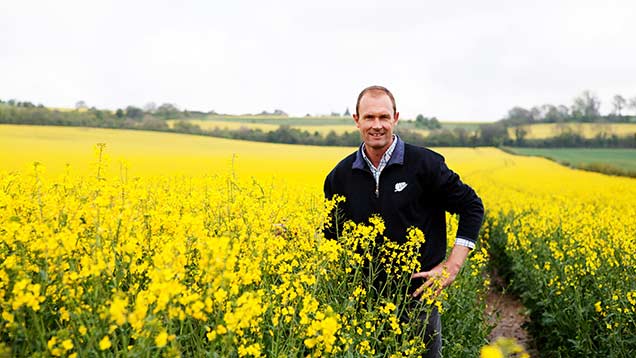Farmer Focus: Low-cost route may be the way ahead for OSR
 © Alexandra Joseph
© Alexandra Joseph Variety choice season is always enjoyable. Wheat-wise, I am a Skyfall/Crusoe man, as that is where my local central store can add most value, plus I remain underwhelmed with the current crop of Group 3s.
So I have been looking at the new milling offerings.
While Trinity is obviously promising, I wonder about the mediocre septoria rating and to my own surprise, it is the new high-yielding Group 2s that have caught my eye.
Much like in the heyday of Group 3s, they are tempting if you can get a yield as good as anything with the added bonus of a premium.
In particular, candidate variety Siskin, with its excellent disease resistance ratings (including a 7 for septoria) that give it an untreated yield of 95%, is food for thought.
See also: Read more from our arable Farmer Focus writers
By my calculation, working on typical fungicide and application costs and reasonable yields, a wheat price of about £150/t would be needed to make applying these fungicides worthwhile.
Maybe I will try half a tramline, in some short work, away from the road.
For my much reduced area of oilseed rape, I can’t help thinking I just have to go for the lowest possible upfront costs.
This would mean home-saving one of the two conventional varieties I have growing, Picto and Amelie.
Obviously the latter was grown for its turnip yellows virus tolerance and I will make a judgement after we see if this helps.
Keeping upfront costs low may, unfortunately, have a bearing on my companion cropping experiments.
Now in my third year, it certainly looks as if we can get some nitrogen from them. But is that value any higher than the additional seed cost?
Having said that, I believe the overall concept has legs and am closely following my neighbour Andrew Howard’s AHDB-sponsored Nuffield scholarship blog on the subject.
Alternative companion options may be a clover I can direct drill the following wheat into or perhaps home-saved bean seed.
I could also reduce initial expenditure by ditching pre-emergence herbicides and relying solely on AstroKerb (aminopyralid + propyzamide) for weed control or perhaps by using a herbicide-tolerant Clearfield variety.
Andy Barr farms 630ha on a mixed family farm in Kent, including 430ha mainly of winter wheat, oilseed rape and spring barley. The rest is in an OELS scheme and grazing for 500 Romney ewes and 40 Sussex cattle.

